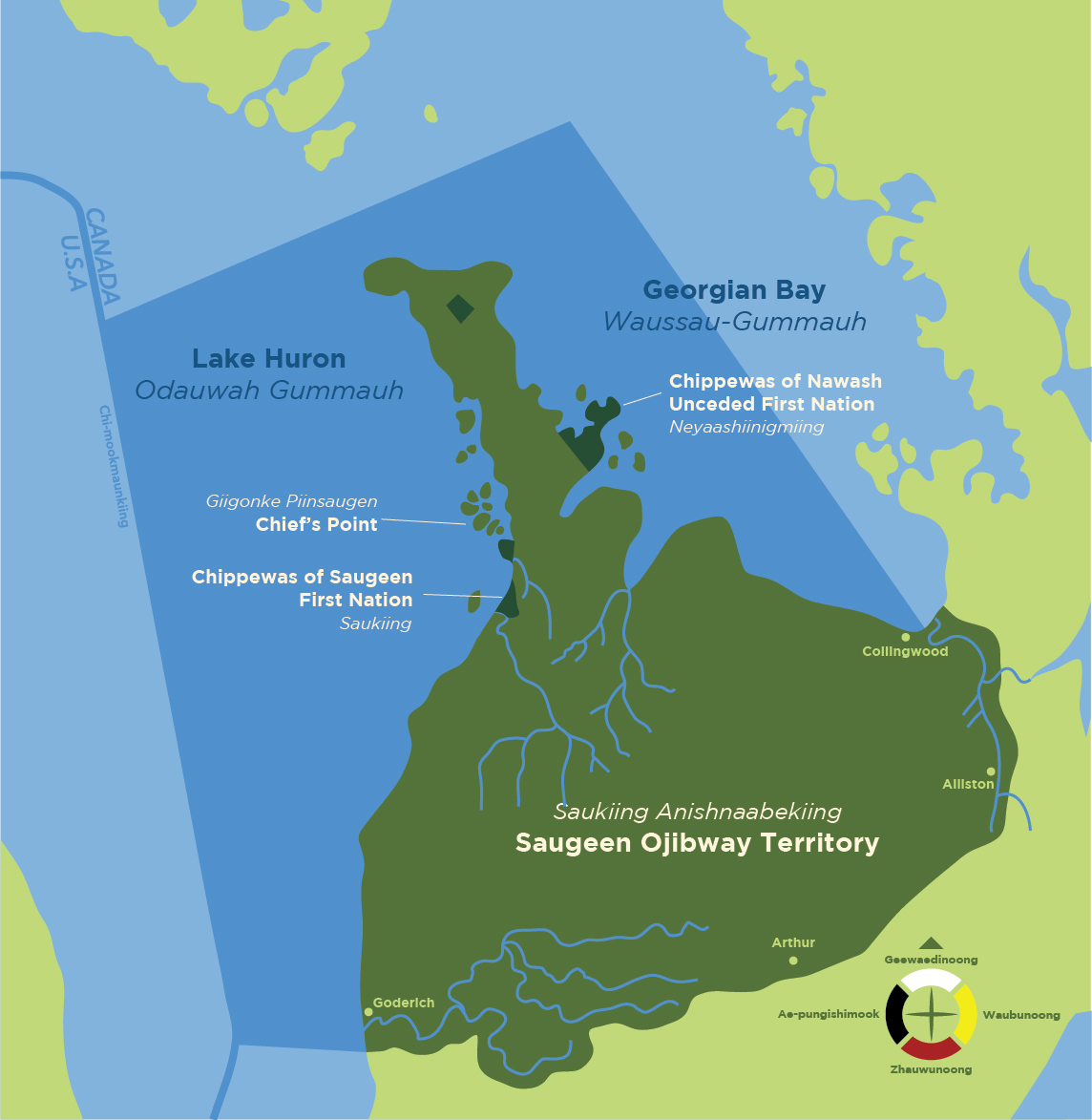Resources
Territory Acknowledgement

Aanii (hello),
Thank you for your inquiry about a land acknowledgement for the Territory of the Saugeen Ojibway Nation (Chippewas of Nawash Unceded First Nation and Chippewas of Saugeen First Nation).
Why do we acknowledge the Territory?
- Recognition of and respect for Indigenous peoples.
- Recognition of their presence both in the past and the present. -Recognition and respect are essential elements of establishing healthy, reciprocal relations.
- These relationships are key to reconciliation.
What is a land acknowledgement?
It’s a formal statement that recognizes the unique and enduring relationship that exists between Indigenous people and their Territories.
- To recognize the land is an expression of gratitude and appreciation to those whose territory you reside on and a way of honoring the Aboriginal people who have been living and working on the land from time immemorial.
- To understand the long-standing history that has brought you to reside on the land, and to seek to understand your place within that history.
- Acknowledging the land is Indigenous protocol.
- A land acknowledgement is a reflection process in which you build mindfulness and intention walking into whatever gathering you are having.
Land acknowledgement statement:
I want to acknowledge the Territory of the Anishinabek Nation: The People of the Three Fires known as Ojibway, Odawa, and Pottawatomie Nations. And further give thanks to the Chippewas of Saugeen, and the Chippewas of Nawash, known collectively as the Saugeen Ojibway Nation, as the traditional keepers of this land.
Let us know if you require any further information from the Environment Office.
Miigwech (thank you),
Environment Office
Archaeology & natural heritage
Conducting archaeology, a guide for archaeological works within the Saugeen Ojibway Nation Territory.
Nation-to-nation protocols
The Environment Office has many dealings with external government organizations, proponents and businesses. Our nation-to-nation protocols detail out how external organizations can properly engage with the SON community.


